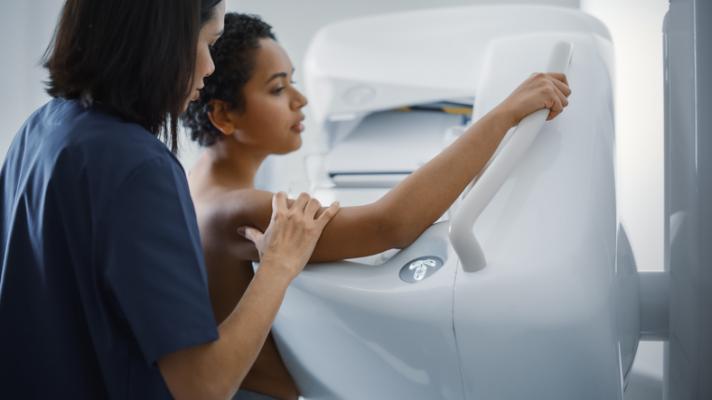
Getty Images
March 2, 2022 — Analyzing breast-cancer tumors with artificial intelligence has the potential to improve healthcare efficiency and outcomes. But doctors should proceed cautiously, because similar technological leaps previously led to higher rates of false-positive tests and over-treatment.
That’s according to a new editorial in JAMA Health Forum co-written by Joann G. Elmore, MD, MPH, a researcher at the UCLA Jonsson Comprehensive Cancer Center, the Rosalinde and Arthur Gilbert Foundation Endowed Chair in Health Care Delivery and professor of medicine at the David Geffen School of Medicine at UCLA.
“Without a more robust approach to the evaluation and implementation of AI, given the unabated adoption of emergent technology in clinical practice, we are failing to learn from our past mistakes in mammography,” the JAMA Health Forum editorial states. The piece, posted online Friday, was co-written with Christoph I. Lee, MD, MS, MBA, a professor of radiology at the University of Washington School of Medicine.
One of those “past mistakes in mammography,” according to the authors, was adjunct computer-aided detection (CAD) tools, which grew rapidly in popularity in the field of breast cancer screening starting more than two decades ago. CAD was approved by the FDA in 1998, and by 2016 more than 92% of U.S. imaging facilities were using the technology to interpret mammograms and hunt for tumors. But the evidence showed CAD did not improve mammography accuracy. “CAD tools are associated with increased false positive rates, leading to overdiagnosis of ductal carcinoma in situ and unnecessary diagnostic testing,” the authors wrote. Medicare stopped paying for CAD in 2018, but by then the tools had racked up more than $400 million a year in unnecessary health costs.
“The premature adoption of CAD is a premonitory symptom of the wholehearted embrace of emergent technologies prior to fully understanding their impact on patient outcomes,” Elmore and Lee wrote.
The doctors suggest several safeguards to put in place to avoid “repeating past mistakes,” including tying Medicare reimbursement to “improved patient outcomes, not just improved technical performance in artificial settings.”
For more information: https://cancer.ucla.edu/


 February 17, 2026
February 17, 2026 









